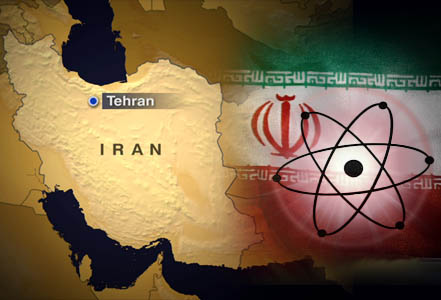 The Wall Street Journal posts an important article --- once you understand the spin in the headline, "Iran Cools Nuclear Work as Vote Looms" and the opening paragraphs --- about the high-level talks between Tehran and the 5+1 Powers on Friday and Saturday in Kazakhstan.
The Wall Street Journal posts an important article --- once you understand the spin in the headline, "Iran Cools Nuclear Work as Vote Looms" and the opening paragraphs --- about the high-level talks between Tehran and the 5+1 Powers on Friday and Saturday in Kazakhstan.
These are the key paragraphs, buried towards the end of the piece:
U.S. and European officials taking part in the diplomacy with Iran this week in Almaty said the focus will again be to get Tehran to cease its production of 20%-enriched uranium and agree to ship out a sizable portion of its stockpile to a third country.
This approach is seen as limiting Iran's ability to quickly attempt to produce nuclear weapons. In return, the U.S. and its diplomatic partners will offer to reduce some of the economic sanctions imposed on Tehran in recent years, including a ban on its trade of gold and precious metals, said officials involved in the diplomacy.
U.S. officials are doubtful of any major breakthrough in Kazakhstan, in part because of Mr. Khamenei's fixation on the June elections.
Interpretation?
1. The US and European partners will pursue the suspension of production of 20% uranium at the Fordoo plant --- although, in contrast to last June's proposals, they will not insist on a permanent shutdown --- and the despatch of Iran's existing 20% stock outside the country.
2. However, the US, Britain, France, and Germany will offer little new in return for this. The easing of sanctions on transfer of gold and precious materials --- a ban which was only imposed by the US on 6 February --- was also put forward at the high-level talks in late February.
3. So, unless Iran capitulates on its demand for meaningful sanctions relief such as the removal of restrictions on oil and financial sectors, there will be no "breakthrough" this week.
4. The US and Europeans will blame the Islamic Republic for this lack of progress, saying it is because of domestic factors.
5. However, the US and Europeans will not walk away from the talks. Indeed, they will say the situation is not so critical that Israeli military action is justified. Back to the top of the article:
Supreme Leader Ayatollah Ali Khamenei has decided to keep Iran's nuclear program within limits demanded by Israel for now, according to senior U.S., European and Israeli officials, in a move they believe is designed to avert an international crisis during an Iranian election year.
At the same time, they will maintain the veiled threat that --- if talks later in the year do not produce an advance --- Israel could launch airstrikes on the Islamic Republic. The final paragraphs of the article:
[Ayatollah Khamenei's] orientation toward the red line [of military capability of a nuclear programme] could be reversed after the election.
"The Supreme Leader might feel he's in a stronger position as far as the next steps in the nuclear program," said Gary Samore, who was Mr. Obama's top adviser on nuclear issues during his first term. "You could imagine, later this year, a confrontation."